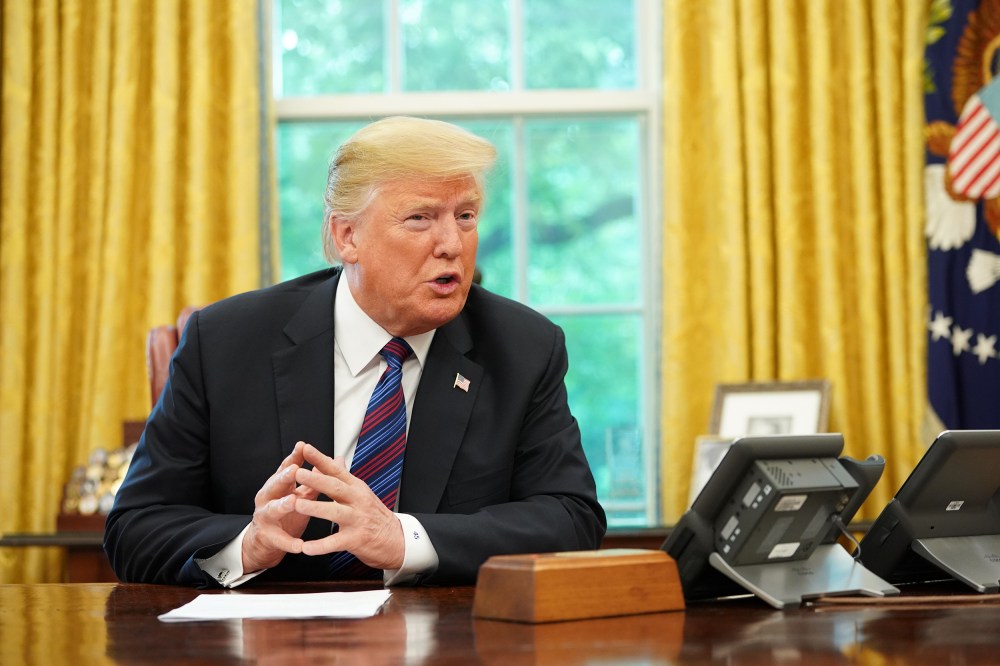At a campaign stop in Pennsylvania yesterday, Donald Trump complained about a great many things, but he launched into an especially interesting tirade about polling.
“We’re doing so good in this state, in North Carolina, in Florida, in Texas, in Ohio, in Michigan. You know how many car plants are being built or expanded in Michigan? We’re doing fantastically in Michigan. We’re doing great in New Hampshire. These are real polls. These aren’t suppression polls. These aren’t polls where they do registered voters. Registered. No. You want to do voters that are going to vote. Registered voters. You want to do what’s called likely voters. Likely. In other words, people that are likely to vote. Not registered voters, many of whom have died….”
So let me see if I have this straight. Pollsters are engaged in some kind of conspiratorial effort to “suppress” Republican support by conducting surveys of registered voters, “many of whom” are dead.
I have a variety of questions about the theory, but let’s start with a basic one: how are dead people answering the phone and expressing political preferences?
As part of the same harangue, the president added, “Right now we’re leading in so many polls that they refuse to put out.” Who are “they”? He didn’t say. Why are they hiding their own survey results? Apparently because of the conspiracy that only Trump is aware of.
To be sure, all of this was odd, but the larger point is that the president, even now, seems wholly unaware of how polling works. As recently as June, Trump told Fox Radio that pollsters literally just make up numbers. “I don’t even think they go out and poll,” the Republican asserted. “I think they sit at a desk and say, ‘Give this number, give that number.’”
Around the same time, his lawyers sent a cease-and-desist letter to CNN, demanding a retraction of a poll that upset the president. The reasoning behind the complaint was absurd, and Trump soon after moved on to different tantrums.
A couple of months earlier, according to multiple independent reports, Trump received discouraging poll numbers from his team, which led the president to reportedly “erupt” and threaten to sue his then-campaign manager, Brad Parscale. (After the incident, Parscale reportedly brought polling numbers to the Oval Office “that were more positive for Trump, and the president seemed in a far better mood.”)
Trump has also claimed that it’s responsible to simply add arbitrary amounts of support to his approval rating, under the assumption that his followers — notorious shrinking violets — are too embarrassed to tell phone-bank callers how much they love the president.














